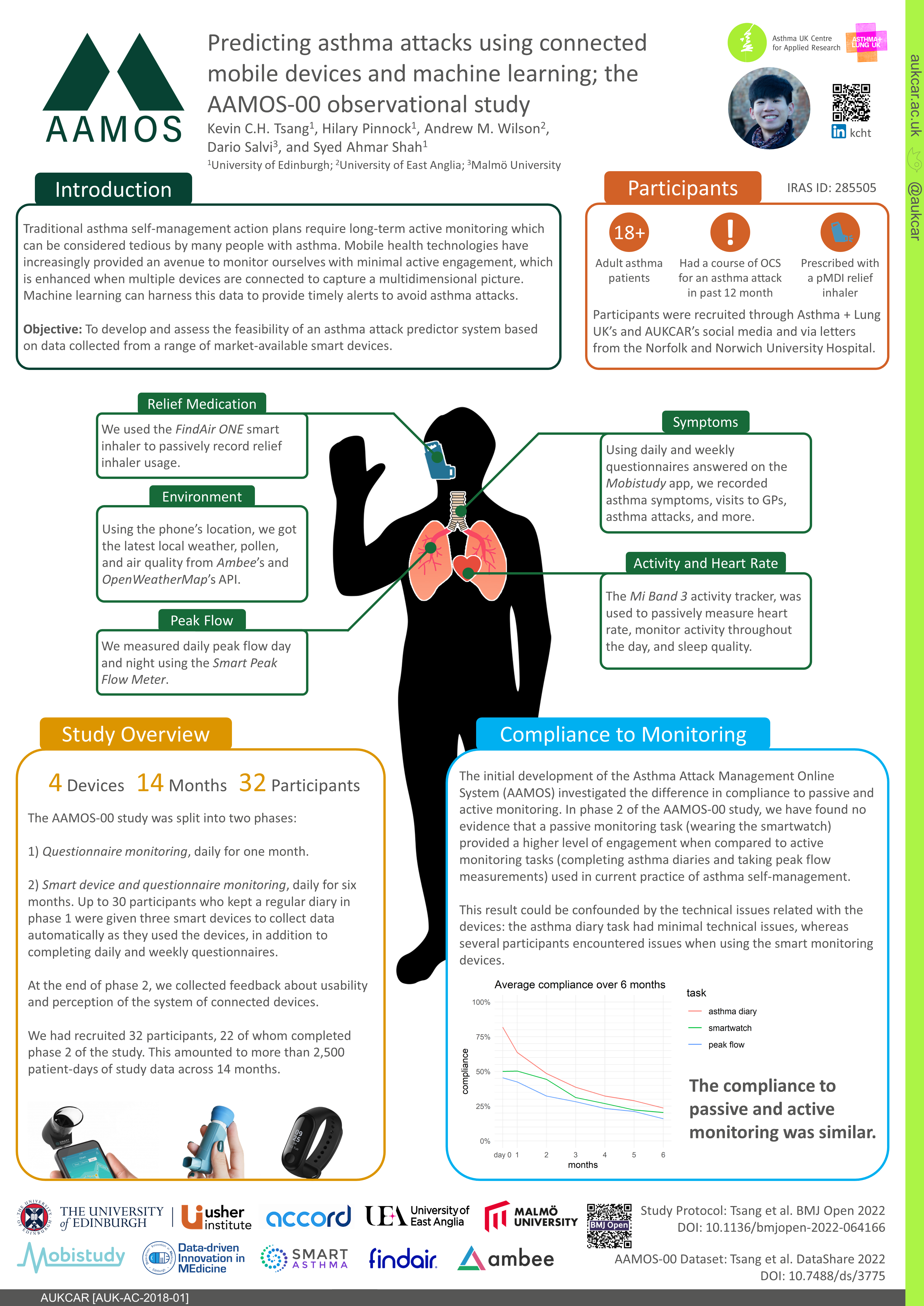The AAMOS-00 data collection has completed with the help of our 32 participants across the UK. Together, we collected over 2,500 patient-days of data between April 2021 and June 2022 to form a rich dataset.
Supported self-management empowering people with asthma to detect early deterioration and take timely action reduces the risk of asthma attacks. Smartphones and smart-monitoring devices coupled with machine learning could enhance self-management by predicting asthma attacks and providing tailored feedback.
Motivated by the need to critically investigate mobile-health passive objective monitoring data using devices already available on the market, our study used three smart-monitoring devices (smart peak flow meter, smart inhaler, smartwatch), daily symptom questionnaires, and linked localised environment data to measure asthma.
Our data has been made open access via Edinburgh DataShare and described in a manuscript published in Scientific Data, Nature. Alongside the dataset, we published some starter code to help you get started with joining the data and make a simple machine learning prediction model.
You can read the protocol of the study published in BMJ Open.
Our findings show that the compliance to smartwatch (passive) monitoring was found to lie between the compliance to (actively) complete daily asthma diaries and (actively) measuring daily peak flow. However, some study participants faced technical issues with the devices which could have affected the relative compliance of the monitoring tasks.

Find out more on the study’s website. You can also read FindAir’s article about our collaboration.
